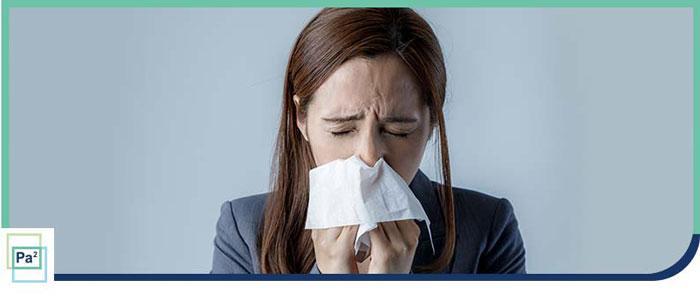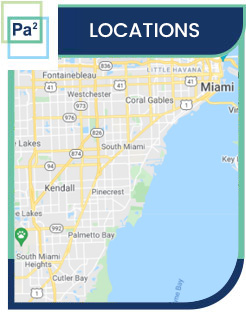Allergic Rhinitis Treatment Allergist in Coral Gables, FL
If you’re struggling with allergic rhinitis, Dr. Carlos Piniella, MD, a board-certified allergist at Piniella Asthma + Allergy in Coral Gables, FL, offers treatment to help manage your symptoms. Using advanced diagnostic methods and personalized treatment plans, Dr. Piniella specializes in providing effective solutions for allergic rhinitis, including allergy testing, medications, and immunotherapy. His goal is to help you breathe easier and improve your overall quality of life by addressing the root cause of your allergies. Contact us today for more information or request an appointment online. We are conveniently located at 6705 SW 57th Ave # 520 South Miami, FL 33143.


Table of Contents:
What triggers allergic rhinitis?
What are the symptoms of allergic rhinitis?
What will happen if allergic rhinitis is left untreated?
What doctor treats allergic rhinitis?
Allergic rhinitis is also sometimes called hay fever, but it isn’t related only to hay and doesn’t cause a fever. Symptoms of allergic rhinitis are similar to a cold – sneezing, sinus pain, and pressure, congestion, runny or stuffy nose, and itchy and watery eyes. Allergic rhinitis is uncomfortable and can interfere with your life, affecting your work or school performance and making you feel sick.
Triggers for allergic rhinitis are tiny airborne particles of allergens or irritants. These particles can include pollen from trees, grass, plants, and weeds, mold, dust mites, airborne chemicals, smoke, and animal dander, which is tiny bits of skin, saliva, and pet waste. We breathe in these particles, and they become trapped in the mucus inside our nose, throat, and lungs. Our immune system begins working to recognize and respond to foreign particles and protect the body against dangerous infections. Cells produce a chemical called histamine when it recognizes something unfamiliar, which causes the cells to increase the amount of mucus being produced, to try to wash out the irritants. We get a runny nose, sneeze, and cough. The immune cells also produce another chemical called antibodies, which match up with the allergens so that if they ever enter the body again, immune cells will recognize them faster. Sometimes the immune system reacts to certain particles that aren’t actually harmful, and this is an allergy.
Allergic rhinitis, commonly known as hay fever, occurs when your immune system overreacts to airborne allergens like pollen, dust, or pet dander. This condition can cause a range of uncomfortable symptoms, which can vary in severity depending on the person and the allergen involved.
Common symptoms of allergic rhinitis include:
• Sneezing
• Runny or stuffy nose
• Itchy nose, throat, or eyes
• Watery, red, or swollen eyes
• Postnasal drip (mucus drainage at the back of the throat)
• Coughing
• Fatigue
If you are experiencing any of these symptoms, it’s important to consult with a healthcare professional for an accurate diagnosis and effective management. At Piniella Asthma + Allergy in Coral Gables, FL, Dr. Carlos Piniella, MD, and his team provide specialized care to help manage allergic rhinitis and offer treatment options to improve your quality of life.
Most allergic rhinitis goes away when either the allergen is removed, or if there is treatment given. Avoiding known allergens is the best way to prevent a reaction, but if it occurs, there are many treatments available to help with symptoms and reduce the severity of the reaction.
• Nasal sprays – decongestants or corticosteroids that reduce swelling in the nasal passages, making it easier to breathe.
• Antihistamines – medications that block the effect of histamine, relieving itching, sneezing, and increased mucus.
• Other medications that change how the antibodies work.
• Immunotherapy – small doses of allergens given over time to build up a tolerance in the immune system.
Leaving allergies untreated can lead to an increased frequency of infections in the ears, sinuses, and lungs. Repeated and frequent allergic rhinitis creates the opportunity for the upper respiratory system to retain more fluid. Pockets of fluid in the sinuses can foster the growth of harmful bacteria or viruses and become infected. Untreated allergic rhinitis can also make other conditions like asthma or eczema worse. In some cases, reactions to allergens can become stronger and more severe over time.
Allergic rhinitis is typically treated by an allergist, a medical professional who specializes in diagnosing and managing allergies and immune system disorders. Allergists are trained to identify the specific allergens triggering your symptoms and to offer treatment options tailored to your needs. They can perform various tests, including skin testing or blood tests, to determine which substances are causing your allergic reactions.
In some cases, a primary care physician may also diagnose and treat allergic rhinitis, especially if the symptoms are mild or seasonal. However, if the condition is persistent or difficult to manage, a referral to an allergist may be recommended. Primary care doctors can provide initial treatment, such as antihistamines or nasal sprays, but an allergist can offer more specialized care and advanced treatment options.
At Piniella Asthma + Allergy in Coral Gables, FL, Dr. Carlos Piniella, MD, a board-certified allergist, specializes in diagnosing and treating allergic rhinitis. Dr. Piniella uses a personalized approach to help manage symptoms and improve the quality of life for his patients, offering both short-term and long-term solutions for those struggling with allergies.
Contact us today for more information or request an appointment online. We are conveniently located at 6705 SW 57th Ave # 520 South Miami, FL 33143! We serve patients from Coral Gables FL, Miami FL, South Miami FL, Westchester FL, Medley FL, Hialeah FL, and Kendall FL.

Additional Services You May Need
▸ Asthma
▸ Allergy Testing
▸ Food Allergies
▸ Immunotherapy
▸ Patch Testing
▸ Allergy Treatment
▸ Pediatric Asthma Specialist
▸ Pediatric Allergist
▸ Insect Bite Allergy
▸ Drug Allergy
▸ Seasonal Allergies
▸ Skin Allergy

Additional Services You May Need
▸ Asthma
▸ Allergy Testing
▸ Food Allergies
▸ Immunotherapy
▸ Patch Testing
▸ Allergy Treatment
▸ Pediatric Asthma Specialist
▸ Pediatric Allergist
▸ Insect Bite Allergy
▸ Drug Allergy
▸ Seasonal Allergies
▸ Skin Allergy


